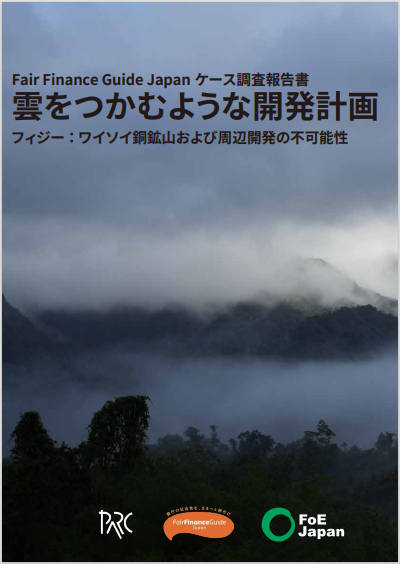Mining in the Mist: Assessing the impossibility of “Responsible Mining” in Namosi, Fiji
Fiji, an island nation in the South Pacific, is known for its beautiful seas and beaches that attracts many tourists from around the world. However, in the interior of Viti Levu, far from such tourist attractions, a copper mine development project has long been considered under a government policy that aims to diversify foreign currency earnings. This is the Waisoi Copper Mine Development Project in Namosi District (Tikina Namosi).
While the demand for copper, large-scale mine development for Fiji itself is unnecessary various international institutions have stated that more copper will be needed in the transition to a decarbonized society and thus the copper mines that are being considered for development are done so under pressure from global copper demand, not strictly for the people of Fiji.
However, this pressure has brought various concerns to Namosi. The misty forests of Namosi has diverse vegetation that retains water and creates a habitat not easily available for many species of plants. And the effects of a large-scale open pit mine developed in the area are unclear. The loss of vegetation at a large mass can even change local weather and precipitation patterns. Surely this will affect the fauna in the region as well.
Furthermore, not only will the large-scale open-pit mine planned in close proximity to the village permanently affect the surrounding water resources, but the recent frequency of extreme weather events has raised concerns about the risk of a tailings dam breach. Although the construction method of the tailings dam is an important piece of information to ensure safety, no information has been disclosed in this regard. Responsible mining standards typically require the use of the best available technology to prevent dam failure. Not disclosing this vital information makes the project far from a responsible mining project.

On the contrary, while the residents have vocally expressed their concerns, the environmental impact assessment, which requires a component of resident consultation, has somehow been submitted without it. Moreover, the project is going ahead without the report being delivered to the residents.
If the project goes ahead as is, it will be fraught with major problems, including violation of Indigenous People’s rights, massive irreversible destruction of ecosystems, and could also lack application of the best available technology to prevent tailings dam failures in a place with so many irregularities. The proximity to the village, the rare ecosystems, the humidity and rainfall, compared to the relative low profits obtained from a low-grade ore all signal the impossibility of the Waisoi mine.
Japanese banks already finance the three companies most involved in this project. Fair Finance Guide Japan does therefore call on Japanese Financial Institutions to recognize that the multiple issues of concern with this mine, and to apply their policies to all investments and loans and strengthen preventive due diligence on all human rights violations.
